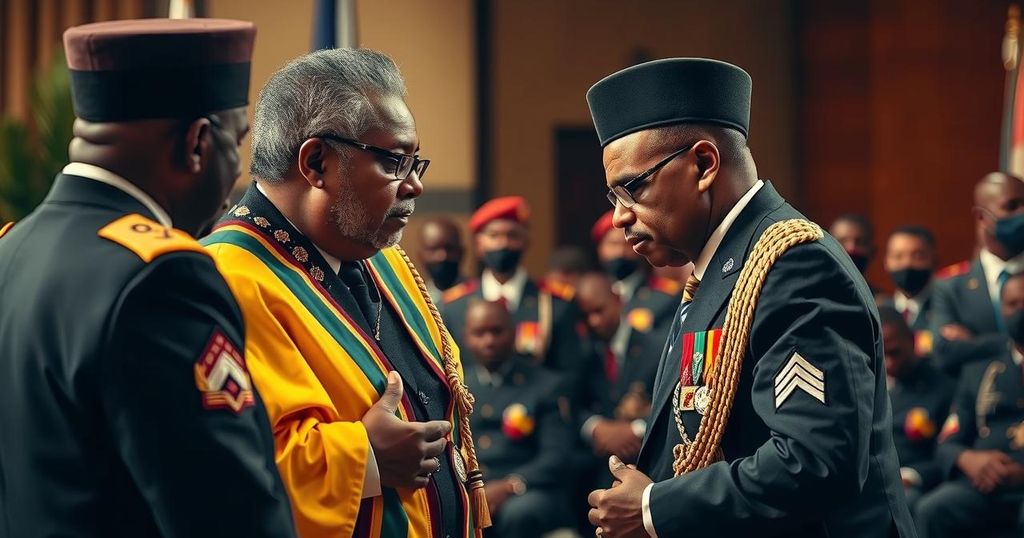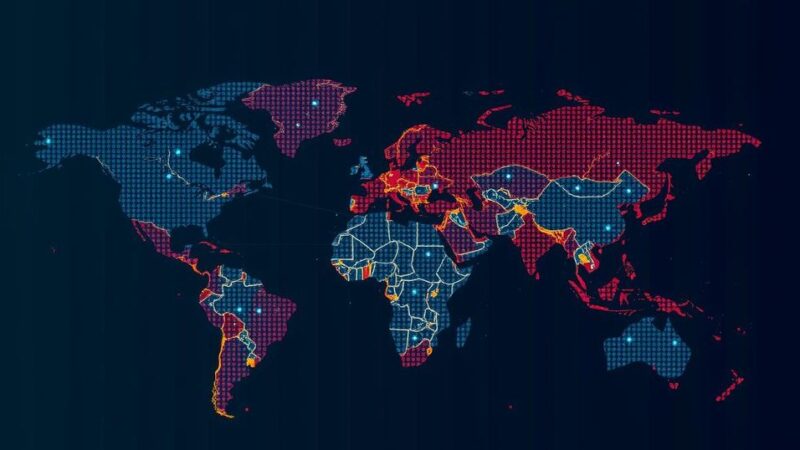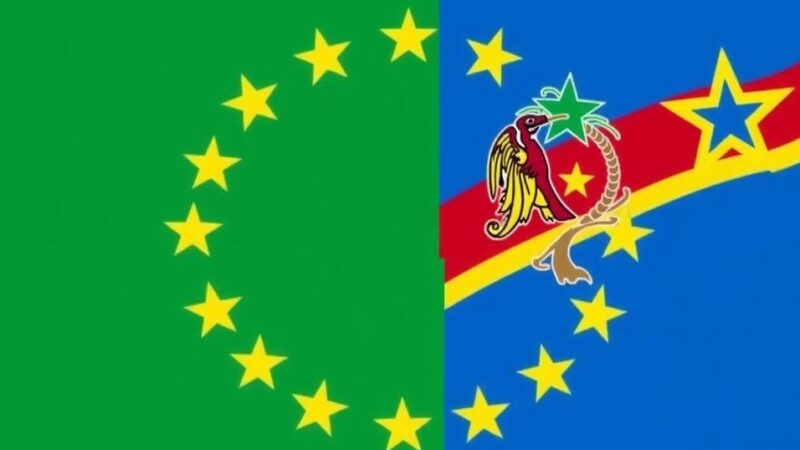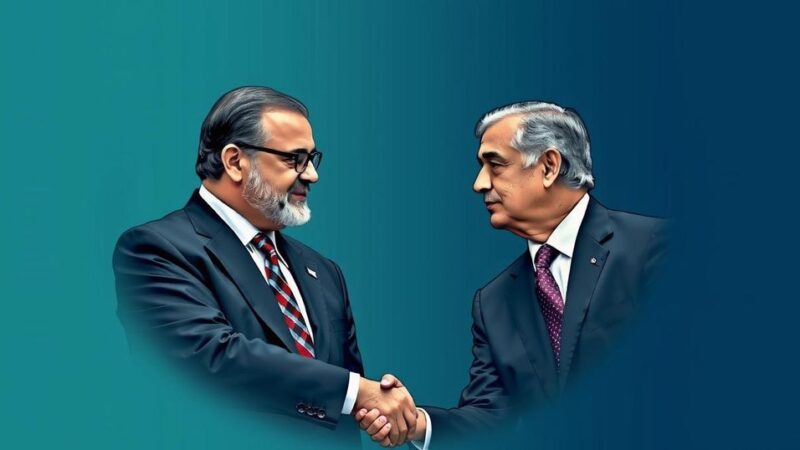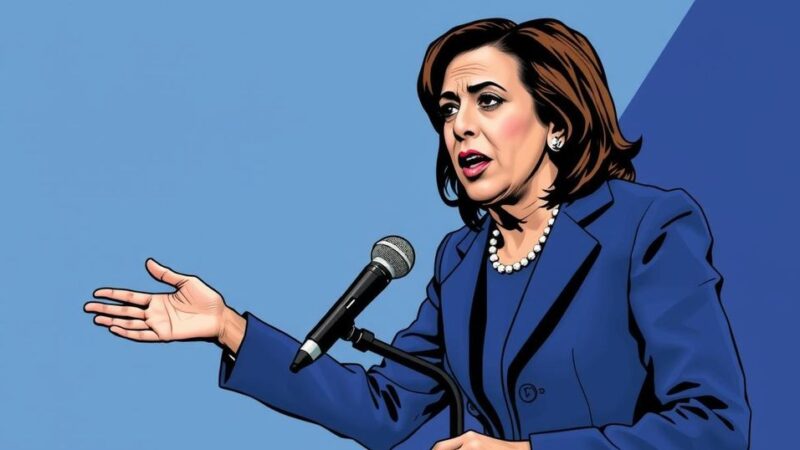Duma Boko was sworn in as Botswana’s new president after a historic election that ended the BDP’s nearly 60-year rule. His plans include raising the minimum wage and introducing universal health insurance while seeking to diversify the economy. Outgoing president Mokgweetsi Masisi acknowledged the defeat, emphasizing a smooth transition. Citizens express hope for change amid economic challenges.
On Friday, Botswana inaugurated its new president, Duma Boko, marking a pivotal transition of power after historic elections that culminated in the unprecedented defeat of the Botswana Democratic Party (BDP), which had held sway for nearly 60 years. Boko, a human rights attorney, was sworn in during a private ceremony conducted by the chief justice, shortly after the electoral results confirmed the reshuffling of the nation’s governance. In his inaugural address, broadcasted live on state television, he outlined ambitious campaign goals, including a proposal to more than double the minimum wage to 4,000 pula (approximately $300) and establish universal health insurance. Boko emphasized the importance of fostering investor confidence and maintaining robust relations with mining industries while highlighting the need to diversify Botswana’s diamond-dependent economy. He acknowledged that such diversification is crucial for stabilizing the nation’s financial future. Although an elaborate public ceremony is yet to be scheduled, Boko expressed his commitment to fulfilling his presidential duties with humility, stating, “I dare not fail. I dare not disappoint.” Outgoing President Mokgweetsi Masisi conceded defeat after election results indicated that the BDP would not secure enough parliamentary seats to form a government. Masisi, who had served since 2018, recognized the missteps of his administration, stating, “We got it wrong big time in the eyes of the people” and highlighting the significance of a smooth transition process. The elections were characterized by concerns over rising unemployment and economic challenges attributed to decreased diamond revenue, with growth projections for the year set at a mere one percent. Duma Boko’s ascension to the presidency marks the culmination of his three-decade-long endeavors in opposition politics, particularly his leadership of the United Democratic Congress (UDC) since 2012, which sought to unite various opposition factions against the longstanding BDP. Observers noted the peaceful transfer of power as a testament to the strength of democracy in Botswana, with Boko commenting, “What has happened today takes our democracy to a higher level.” Citizens expressed optimism about the new leadership, eager for tangible changes in addressing prevalent economic issues and governance challenges. As indicated by several voters, the BDP’s failures to deliver on various promises contributed to the electorate’s shift in favor of Boko. The president’s pledge for accountability and transparency is a hopeful aspect for many, as they look forward to a renewed political climate in Botswana.
The political landscape in Botswana has undergone a significant transformation following the recent elections that resulted in the ousting of the Botswana Democratic Party (BDP), which has dominated since the country’s independence in 1966. This change is particularly noteworthy, considering the BDP’s grip on power for nearly six decades. Duma Boko, a seasoned human rights lawyer and opposition leader, represents a new political era that promises to address critical socio-economic challenges, including rising unemployment and economic diversification away from diamond dependency. The peaceful transition of power showcases Botswana’s commitment to democracy, underscoring the participation of citizens in shaping their governance.
The inauguration of Duma Boko as Botswana’s president signifies a momentous shift in the country’s political dynamic, bringing forth new hopes for addressing pressing economic issues and fostering a more equitable society. The peaceful transition from the long-standing BDP administration marks a pivotal chapter in Botswana’s democratic journey. With Boko’s ambitious plans for economic reform and his commitment to represent the people’s interests, there is a collective anticipation for meaningful change under his leadership. Citizens have made their voices heard, and it will be essential to monitor the new government’s progress in delivering on its promises and ensuring continued democratic engagement.
Original Source: www.wfxg.com
